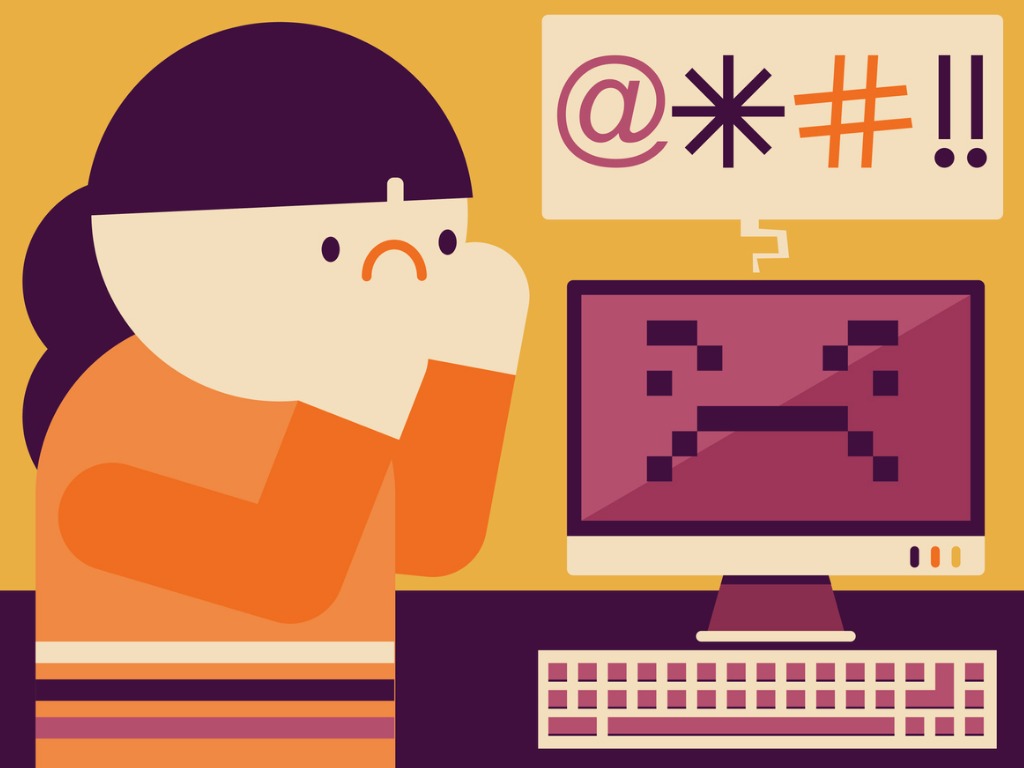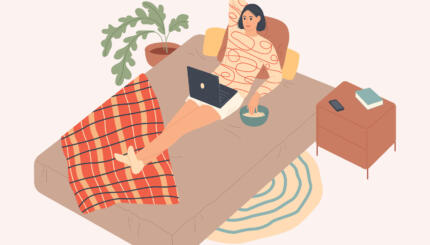Jessica liked your post. Ever notice how that one little notification can have a big impact on your emotions? You feel a rush of excitement and happiness and then wait in anticipation for more “likes” to come in.
As you’re waiting, you scroll through your Instagram feed and see a picture of your friends posing together at a basketball game—without you. And just like that, you go from feeling happy to being totally bummed out with a major case of FOMO in a matter of seconds. What happened?
How Social Media Affects Your Mood
Your reaction is normal—social media can have a strong influence over emotions—but it might not be healthy. “We’re seeing an increase in anxiety and depression amongst teenagers which seems, at least in part, to be related to the rise in dependence on various aspects of social media,” says Deborah Silver, LCSW, a therapist based in New York City. Research also shows that a high level of social media use is linked to an increased risk of poor body image and feelings of loneliness and isolation. In other words, all of that time spent posting, commenting, scrolling, and liking may be messing with your mood.
There are several reasons why social media may lead to anxiety or depression. Cyberbullying, FOMO, and seeing unrealistic images posted by celebrities, influencers, and even your own friends (hello, Photoshop) are a few examples, says Lindsey Giller, PsyD, a clinical psychologist at the Child Mind Institute. Plus, while being on your phone connects you with friends in some ways, in other ways it can take time away from connecting in person—something that feels good, too.
Mental health experts aren’t the only ones noticing the darker side of Instagram and its online cousins. According to a recent study, 24% of teenagers say social media has a mostly negative effect on their lives and the lives of peers. The top reasons: rumor spreading, harming relationships, and providing unrealistic views of other people’s lives.
Avoiding the Instagram Trap
Social media also has lots of upsides, so it’s up to you to figure out how to experience the positive side without getting sucked into the negative. These tips can help:
Feel free to unfollow. You already know that a lot of what you see online isn’t real, but that doesn’t make it any easier to scroll through heavily photoshopped images of perfect-looking peers. If following a certain person makes you feel less than great, consider tapping the unfollow button, suggests Giller.
Take cyberbullying seriously. Sometimes, the best way to quiet an online bully is to disengage rather than fight back, says Jonathan Singer, Ph.D., associate professor at Loyola University in Chicago. However, if the cyberbullying persists or if it’s making you feel anxious or depressed, tell a teacher or parent. They’ll be able to help you figure out the best way to navigate the problem.
Connect offline. Hanging out with friends doesn’t just give your thumbs a break from scrolling through your feeds, it also helps you develop important communication skills. After all, if a friend says something that upsets you in-person, you can’t just send an annoyed emoji-face message. Dealing with uncomfortable situations face-to-face teaches life-long skills for dealing with conflict and disagreeing respectfully.
Give it a rest. No one expects you to disengage from social media completely, but if you notice that scrolling through Instagram is starting to make you feel bad about yourself, that’s a cue to put down your phone for a little while. Doing something physical, like taking your dog for a walk or playing tag with your little sister, can help reset your mood. A social media time-out can help remind you that you can have fun without the cutesy captions and filters.
Special thanks to our experts:
Lindsey Giller, PsyD, clinical psychologist at the Child Mind Institute; Deborah Silver, LCSW, therapist in New York City; Jonathan B. Singer, Ph.D., LCSW, associate professor, School of Social Work, Loyola University Chicago and founder and host of the Social Work Podcast.






